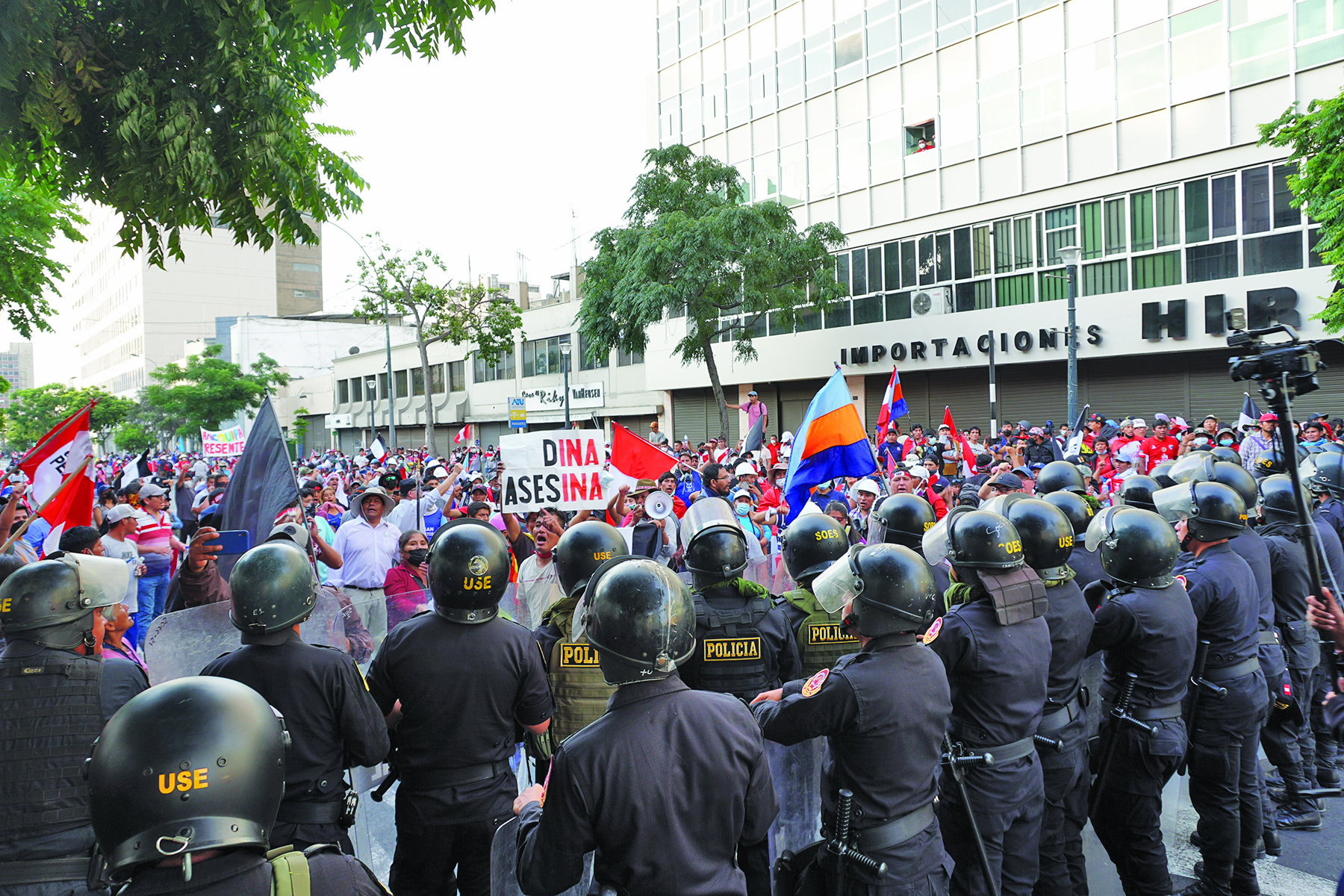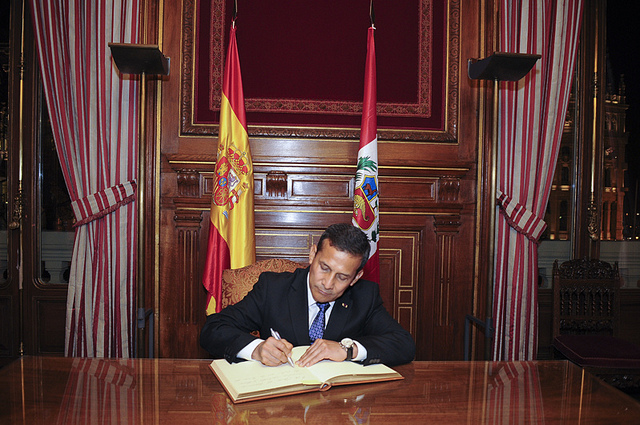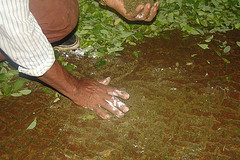
(Photo by Shutterstock/Joseph Moreno)
Peru
Peruvian turmoil recipe for green-policy rollbacks?
February 21, 2023 By Barbara Fraser
Advocacy groups worry Peru’s Congress will take advantage of ongoing political and social strife by enacting bills that spur deforestation, undercut protections for isolated indigenous people, and cramp the government’s ability to address climate change.
Indigenous-rights and environmental organizations point in particular to three pending bills. One would modify Peru’s Forest and Wildlife Law so regional governments can sidestep existing forest zoning criteria and grant titles to people illegally occupying woodlands. A second would suspend the creation of new reserves for semi-nomadic indigenous peoples who shun contact with outsiders and enable regional governments to reassess the need for existing and proposed reserves. The third bill worrying advocacy groups would limit the national government’s management of carbon credit schemes and the revenue they generate.
All three bills are working their way through Congress as various regions of Peru are gripped by protests that began after former President Pedro Castillo was impeached Dec. 7 for attempting to close Congress and rule by decree. Since then, over 50 people have been killed and more than 1,500 injured in protests. Embattled President Dina Boluarte, who was Castillo’s vice president, has called new general elections for April 2024, but some legislators are proposing an earlier date.
“This situation of conflict is being used to pressure for the approval of bills that do not benefit the Amazon or respect the rights of Indigenous peoples,” Vanessa Cueto, vice president of the nonprofit Law, Environment and Natural Resources (DAR), told EcoAméricas.
Bypassing land-use studies
A prime cause of concern is the bill that would modify the Forest and Wildlife Law. Under the bill, once land is titled it could be cleared for agriculture without the land-use change studies and Environment Ministry approval currently mandated by the law. Congress approved the bill while Castillo was still in office; but he sent it back with observations, putting the matter back in Congress’s hands. The proposal is opposed by the Environment Ministry and the National Forest and Wildlife Service (Serfor), which worry it could encourage land-grabbing and deforestation.
Green advocates say the bill would legalize ownership of land used for illegal drug cultivation, corporate palm plantations, and farming by Mennonite colonists. “This is the continuation of a series of policies aimed at invading the Amazon in general,” says Lucila Pautrat, director of the environmental group Kené. “We see it in Brazil, Colombia and now Peru.”
The congressional commission that focuses on indigenous peoples and the environment proposed shelving the bill, but the commission on agriculture wants it forwarded to the full Congress. A request by Kené for a court injunction to block the measure was denied, but Kené and the Interethnic Association for the Development of the Peruvian Rainforest (Aidesep), an indigenous-rights network, have appealed.
Serfor Executive Director Luis Alberto Gonzales-Zúñiga says “hundreds of thousands” of small farmers living illegally in public forests need a way to legalize their occupation, but the bill does not distinguish between those “who are seeking development, although on public lands,” and those engaged in illegal activities. He proposes renewable land-use permits and technical assistance, contingent on pledges “not to advance a centimeter more” into the forest.
Reviewing reserves
The bill addressing semi-nomadic indigenous peoples living in voluntary isolation would enable regional governments to create commissions to review existing and proposed reserves and eliminate them if they decide there are no isolated people in the area. The measure would stall efforts to create the Napo-Tigre reserve for isolated groups in the northeastern Loreto region. At a Jan. 23 public hearing in Iquitos, speakers claimed isolated groups do not exist in the region, despite evidence to the contrary gathered by anthropologists, indigenous organizations and Peru’s Ministry of Culture.
The measure would roll back isolated people’s existing constitutional right to protection, says Rocío Trujillo, an Aidesep legal advisor. It also would fragment mosaics of protected areas, potentially boosting deforestation and undermining Peru’s climate commitments. Says DAR president Hugo Che Piu: “The main purpose is to stop the processes underway, review the existing reserves and extinguish them.”
The third bill irking advocacy groups, as well as the Environment Ministry, would limit the national government’s management of carbon-credit projects. It would do so by giving a private fund closely tied to the government control only over projects related to national protected areas. Otherwise, regional governments, companies or nonprofits would be in charge. The change would undermine the ministry’s authority to manage the country’s climate commitments, warns Iris Olivera, coordinator of DAR’s climate change and forests program. She says the new policy could also result in double accounting of carbon credits in a national system that has not yet been fully implemented.
This story was republished with permission from EcoAméricas. To read it click here.





